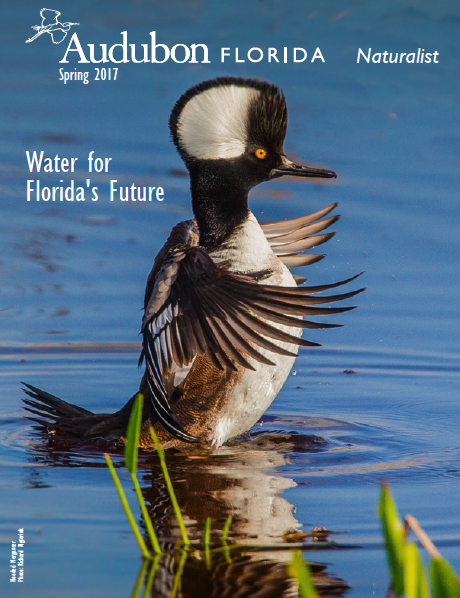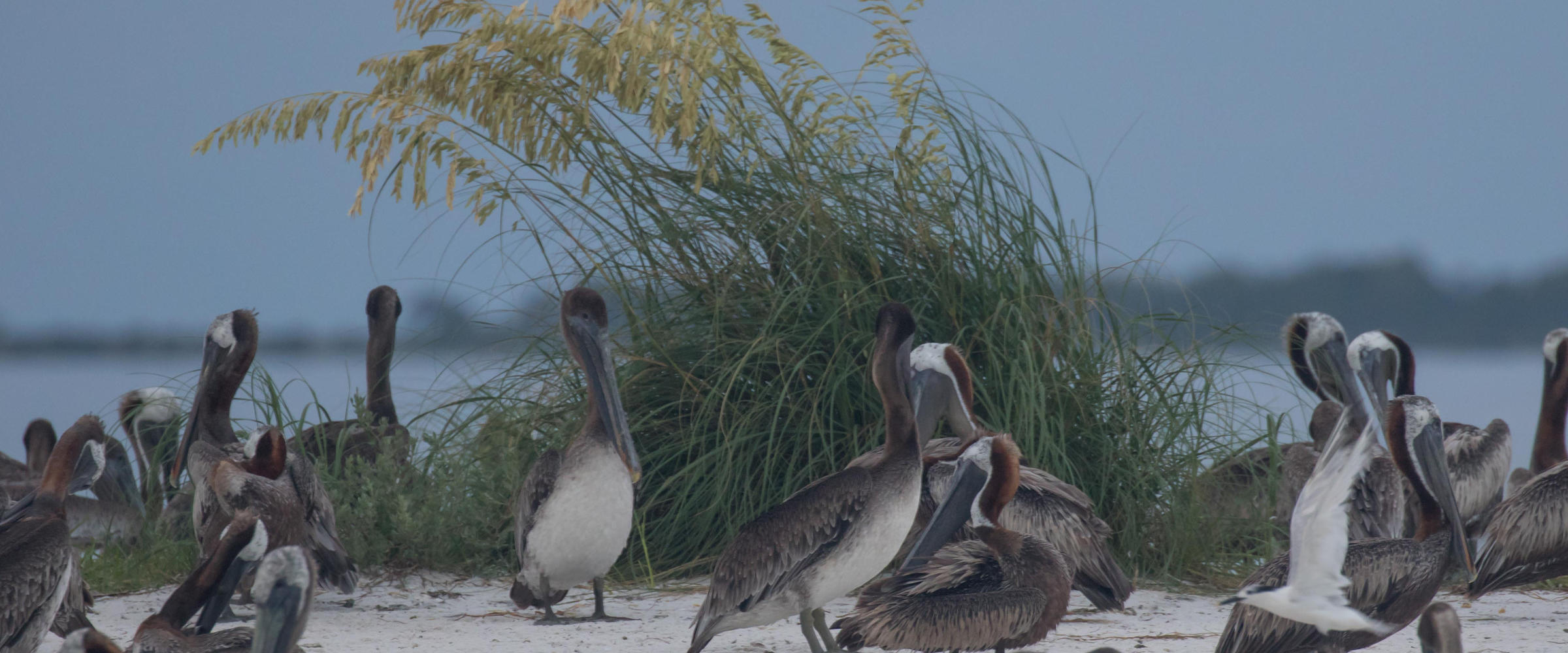Audubon Florida works statewide to protect rare and sensitive bird habitat. In Northwest Florida, the Apalachicola River and Apalachicola Bay are some of the most diverse ecological waterways in the southern U.S. In 2010, Audubon Florida acquired the last remaining inholding on Lanark Reef, an island complex in Apalachicola Bay that is of global importance for species like the American Oystercatcher. When healthy, Apalachicola Bay supports an oyster industry that yields more than 10 percent of U.S. oysters.
Audubon in Action: When the State of Florida needed science to back up its lawsuit demanding that Georgia reduce its water use, Audubon provided scientific information on birdlife in Apalachicola Bay in a friend of the court brief to the U.S. Supreme Court.
Conservation in this region is complicated by its intimate connection to upstream water sources that originate out of state. Water flowing through the Chattahoochee and Flint Rivers in Georgia join together near the Florida border to form the Apalachicola River, which flows into Apalachicola Bay. Georgia’s water use therefore has a fundamental impact on the Apalachicola region and the birds and wildlife that call it home.
Audubon and other conservation groups support the State of Florida in litigation before the U.S. Supreme Court that seeks to resolve a decades-long debate about how water can be allocated between Georgia, Alabama, and Florida. Recently, a court appointed Special Master found that Florida is harmed by the lack of flow into the Apalachicola River. Unfortunately, the Special Master stopped short of recommending limitations to Georgia’s overconsumption of water. He also did not recommend a more even distribution of water between the states, noting that many water decisions are made by the U.S. Army Corps of Engineers and not at the state level.
With the conservation focus shifting from a legal to a policy strategy, Audubon thanks champions like Senators Nelson and Rubio and Representative Neal Dunn for seeking solutions that can more appropriately balance the consumptive water needs of Georgia and the ecological water needs of Florida. Audubon will continue to weigh in on behalf of the birds and wildlife that are impacted by these threats to the Apalachicola region.
This article and more are featured in the Spring 2017 edition of Audubon Florida's Naturalist magazine. |
 |






